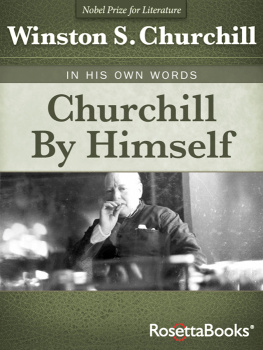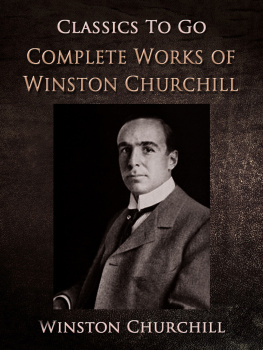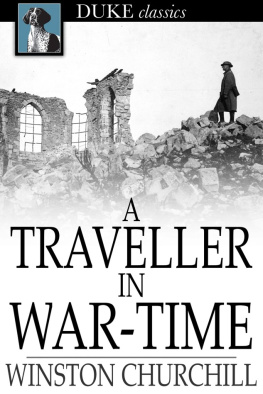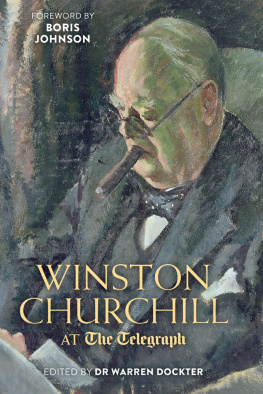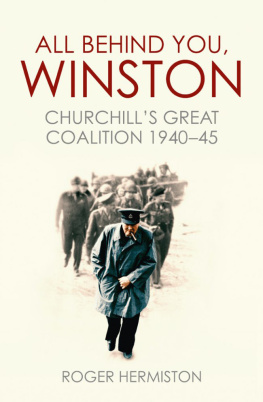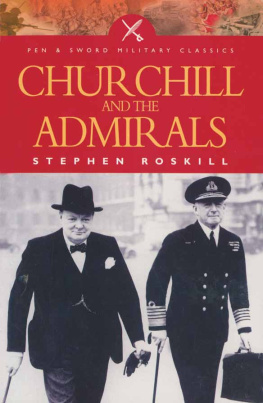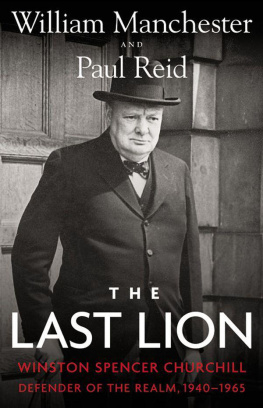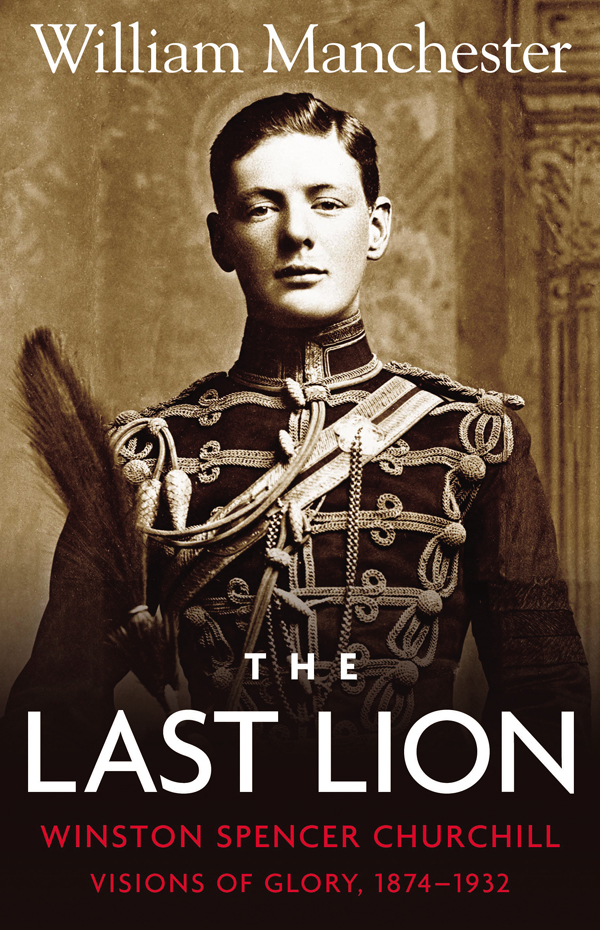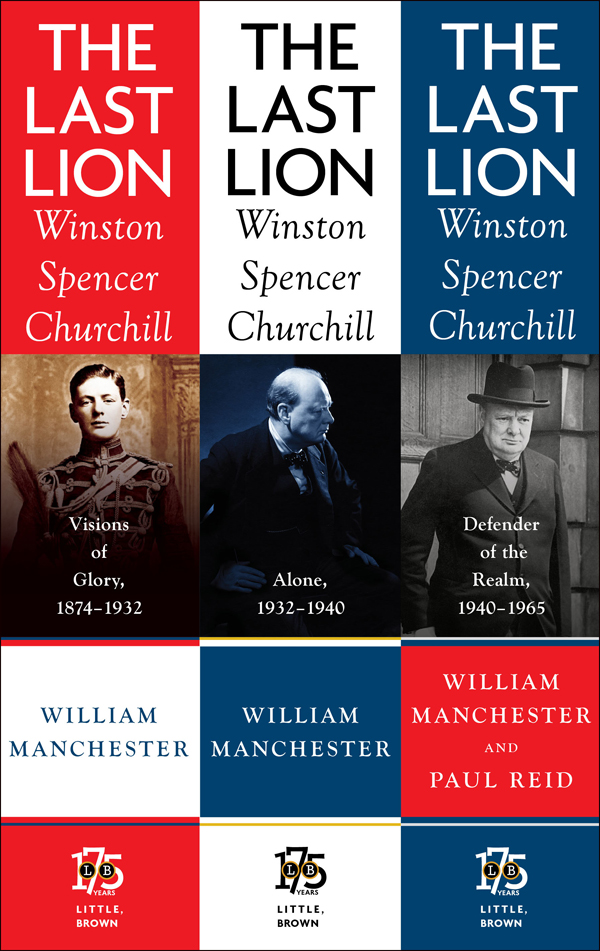Thank you for buying this e-book, published by Hachette Digital.
To receive special offers, bonus content, and news about our latest e-books and apps, sign up for our newsletter.
Compilation copyright 2012 by William Manchester, John Manchester, Julie Manchester, Laurie Manchester, and Paul Reid
Volume One: Visions of Glory, 18741932 1983 by William Manchester
Cover design by Matt Tanner; photograph Mirrorpix/The Bridgeman Art Library
Volume Two: Alone, 19321940 Copyright 1988 by William Manchester
Cover design by Matt Tanner; photograph Cond Nast Archive/Corbis
Volume Three: Defender of the Realm, 19401965 2012 by John Manchester, Julie Manchester, Laurie Manchester, and Paul Reid
Cover design by Matt Tanner; photograph Mirrorpix/The Bridgeman Art Library
Omnibus cover design by Matt Tanner
Covers copyright 2012 by Hachette Book Group, Inc.
All rights reserved. In accordance with the U.S. Copyright Act of 1976, the scanning, uploading, and electronic sharing of any part of this book without the permission of the publisher constitute unlawful piracy and theft of the authors intellectual property. If you would like to use material from the book (other than for review purposes), prior written permission must be obtained by contacting the publisher at permissions@hbgusa.com. Thank you for your support of the authors rights.
Little, Brown and Company
Hachette Book Group
237 Park Avenue, New York, NY 10017
littlebrown.com
twitter.com/littlebrown
First e-book omnibus edition: November 2012
The publisher is not responsible for websites (or their content) that are not owned by the publisher.
The Hachette Speakers Bureau provides a wide range of authors for speaking events. To find out more, go to hachettespeakersbureau.com or call (866) 376-6591.
ISBN 978-0-316-24758-0
E3
David (now Sir David) Pitblado introduced me to Winston Churchill (himself still unknighted) in the Verandah Grill of the Queen Mary, that greatest of Cunarders, on January 24, 1953. The prime minister, or P.M., as his entourage called him, was returning home with his family after a holiday and a series of meetings in Washington. As a young foreign correspondent on my way to the Middle East and India, I was delighted to discover that my cabin, M 101, was adjacent to Churchills suite. Even better, Pitblado, then the prime ministers principal private secretary, had read the British edition of my first book and thought it commendable. He graciously arranged for me to see the P.M. from time to time during our five-day voyage to Southampton. It would be inaccurate to say that Churchill and I conversed. Alone with him I was mute, having, in fact, nothing to say. He had everything to say, and like Gladstone speaking to Victoria, he addressed me as though I were a one-man House of Commons. It was superb. I was enthralled, and eagerly accepted an invitation to tour the rooms of No. 10 Downing Street, with a Scotland Yard inspector as my guide, during my layover in London.
Thus began my accumulating debt to British hospitality. It is now immense. While researching this work I took a flat in Mayfair, but I seldom dined there alone. The Churchillians, as Sir John Colville calls them, entertained me in their homes, answered all my questions, suggested other sources, and provided me with valuable introductions. Lady Soames, DBE (Mary Churchill), packed a picnic lunch and drove me to Chartwell, where we spent the day wandering through the mansion and its grounds and examining scores of her fathers canvases. It was in the flat of Jane Williams, who is triply qualified as an observer of the English patriciateshe worked with Churchill and is the niece of both Lord Butler (Rab) and Lord Portal of the RAFthat I first found myself at a table with Jock Colville, Churchills assistant private secretary during most of World War II and joint principal private secretary during the P.M.s second premiership in the early 1950s. Butler himself received me in his country home shortly before his death. So did Lord Head at Throope Manor; General Sir Ian Jacob, military assistant secretary to the War Cabinet from 1939 to 1945, at Woodridge; and Harold Macmillan at Birch Grove House in Sussex. It was typical of Macmillans gallantry that although he felt too ill to eat, he had laid out a champagne lunch for me.
Such graciousness can lead to pleasant embarrassment. When my London hack drew up outside the Oxford studio of Oscar Nemon, sculptor of Churchill, Nemon raced out of the house, his smock flying behind him, and insisted, to the point of physical pummeling, on paying the cabby. At No. 1 Eaton Square, Lord Boothby broke out a shining bottle of prime bourbon although it was only 2:00 P.M. Sir John Martin in Watlingham, Martin Gilbert on Oxfords Harcourt Hill, and R. L. James on Oxfords Blenheim Drive clearly assumed that I would arrive with an enormous appetite. Sir William Hawthorne, Master of Churchill College, Cambridge, expected me to be both omnivorous and omnibibulous; when we rose from his high table and left the room I felt sheathed in an alcoholic mist. But as it cleared, I met two meticulous Churchill scholars: Captain Stephen Roskill, RN, and Correlli Barnett, keeper of the Churchill Archives. Remarkable shortcuts were disclosed in social situations. Over biscuits in Twisden Road, for instance, A. J. P. Taylor guided me toward Lloyd George, Bonar Law, and Beaverbrook papers. Churchill himself was never a clubman, but in exploring the web of his friendships I found those last bastions of male chauvinism invaluable. Holding honorary membership in three London clubs, I could entertain and then interview, sotto voce, men who would have been reticent in other surroundings. But here, once again, I was guest more often than hostof Sir David Hunt at the Athenaeum, for example, and Sir William Deakin at the Oxford and Cambridge, and George Malcolm Thompson at the Garrick. It was from the Reform Club that Graham Norton and I sallied forth one glistening evening for a nightlong exploration of Victorian Londons architectural relics, winding up near Covent Garden.
Others who welcomed me or visited me for taped sessions were Cecily Chips Gemmell, Lord Soames, Lady Diana Cooper, Lord Selkirk, Lord Hailsham, John Griggs, Malcolm MacDonald (son of Ramsay and himself an MP), Lord Strauss, Sir Fitzroy MacLean, Mark Bonham Carter, Mrs. Kathleen Hill, Grace Hamlin, A. A. Montague Browne, Richard Hill, Velma Salmon, Lady Avon, Noel Mander, Lord Geoffrey Lloyd, Julian Amery, Denis Kelly, Sir Charles Martin, Lord Southborough, and, in his delightful Sussex cottage outside Robertsbridge, Malcolm Muggeridge. Not all my respondents were British. Virginia Cowles is undeniably American, though in her Belgravia home she evokes the presence of Mrs. Miniver. Averell Harriman is a triumph of the English-Speaking Union; he seems at home in either London or New York, provided the background is expensive and in exquisite taste. His wife, Pamela, though active in U.S. politics, will never pass as American. She was born a Digby in Dorset, Thomas Hardy country, and you know it from her every gesture. Her first husband was Randolph Churchill; their son, born during the Battle of Britain, is the second Winston Spencer Churchill, MP, who was my thoughtful host at lunch in the House of Commons.








